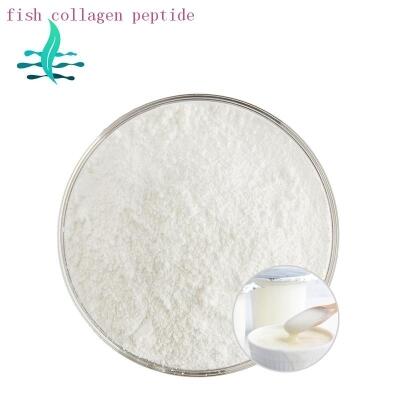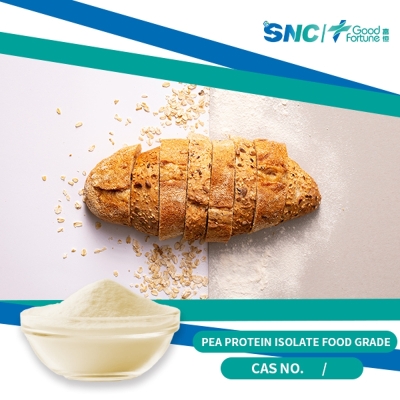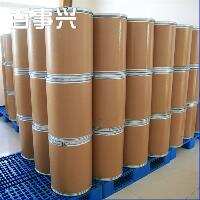The importance of proline, a low-protein amino acid balanced diet, which has been "snubbed".
-
Last Update: 2020-07-29
-
Source: Internet
-
Author: User
Search more information of high quality chemicals, good prices and reliable suppliers, visit
www.echemi.com
OA_show ('533'); The development ofbiotechnology has greatly promoted the improvement of fermentation technology, reduced the production cost of crystal icing amino acids, and created the possibility for its large-scale application in animal productionOn this basis, with the introduction of the "ideal amino acid model", adding crystal amino acids to feed to meet the nutritional needs of livestock and poultry to improve the utilization rate of livestock and poultry feed and the body protein deposition, promote the growth of livestock and poultry, greatly reduce the cost of livestock and poultry breedingIn production, lysine, methionine, sucrose and tryptophan have been widely used in livestock and poultry feedqtn However, with the further study of animal nutrition, we have come to realize that higher levels of protein in daily grains (especially corn bean meal-type diet) promote the proliferation of pathogenic Ecoli, improve the fermentation of post-intestinal protein, and damage intestinal health, resulting in increased animal diarrhea, slow growth, higher emissions of fecal nitrogen and urine nitrogenTherefore, in the current government environmental pressure, soybean meal prices and pig prices fall, research and development of low-protein amino acid balance diet is the only effective way to deal with the current difficultiesIn the case of weaned piglets of about 6 kg, Toledo et al(2014) found that, by balancing levels of lysine, methionine, sucrose, tryptophan, and proline in the feed without affecting the growth performance of piglets, the level of daily protein can be reduced from 21% to 15%Nevertheless, compared with lysine, methionine, sucnonine and tryptophan, the current feed enterprises on the importance of proline awareness is not highTherefore, this paper studies the effect of the absence of different amino acids (tryptophan, sucone, methionine and proline) in low-protein amino acid balance diet on the growth performance of piglets, and explores which amino acid deficiency has the greatest effect on growth performanceQtn test design qtn trial selected 147 head 8.9 kg or so piglets, randomly divided into control groups (fed CP 19.2% corn soybean meal daily grain, formula table 1), negative control group (feeding CP 13.5% of daily grain, while balancing lysine and heterobrighta The amino acid additive group (fed at the same time balanced with Trp, Thr, Met, Val's CP for 13.5% of the daily grain) and the cessin, suchenosine, methionine, and proline CP 13.5% of the missing, were treated with a total of 7 treatmentsEach process es3 repeats, each repeats 7 pigletsThe experiment lasted 21 days, during which the amount of food and daily weight gain was recorded and the meat ratio was calculatedqtn table 1 control group and negative control group diet group qtntest results qtndifferent treatments on the effect of daily weight gain qtn from Figure 1, compared with the control group, the level of diet protein decreased to 13.5% significantly reduced to 13.5% of the daily weight gain of piglets (P P) 0.05 However, there was no significant difference between daily weight gain in the amino acid addition group and the control group (P 0.05) and slightly higher than the control group, indicating that the simultaneous balance of the cesium, egg, sul, trypheumine, and prolineine levels of daily grain CP from 19.2% to 13.5% The absence of tryptophan, sucone, methionine and proline was found in the amino acid-added group, and the lack of tryptophan and methionine reduced the daily weight gain of piglets compared with the control group and the amino acid added group, but had no significant effect on the daily weight gain (P 0.05);These results showed that the absence of proline in low-protein diet had a greater effect on the daily weight gain of piglets than the lack of tryptophan and methionine Qtn Figure 1 Different treatments on the effect of daily weight gain in piglets qtn the effect of different treatments on the amount of daily harvest of qtn by Figure 2, the test group of piglets no significant difference between the daily harvest and control group (P 0.05) In addition, there was no significant difference between the daily harvest of pythnosine deficiency group, sucone deficiency group and celine deficiency group piglets and amino acid-added group piglets (P 0.05) However, the amount of food taken by the pythlinine deficiency group was significantly lower than that of the amino acid added group (P 0.05), indicating that the lack of proline in low-protein amino acid balance diet had a greater effect on the daily feeding volume of piglets than tryptophan, sulpline and methionine Qtn Figure 2 Different treatments on the effect of the daily feeding volume of piglets qtn the effect of different treatments on meat ratio qtn by Figure 3, compared with the control group, the level of daily grain protein decreased significantly reduced to 13.5% However, there was no significant difference between the meat ratio of the amino acid-added group piglets (P 0.05), indicating that the low protein amino acid balance did not affect the meat ratio of piglets The absence of tryptophan, sucone, methionine and proline in the amino acid-added group was found to significantly reduce the meat ratio of piglets (P 0.05) compared to the control group, while the effect of tryptophan deficiency on the ratio of pigleta (P 0.05) These results showed that the absence of sulpine, methionine and proline in the balance of low-protein amino acids had a significant effect on the meat ratio of piglets Qtn 3 different treatments on the effects of the pig's ratio qtn conclusion qtn conservation pig corn - soybean meal - whey powder edilene, methionine, sulpine, tryptophan, proline and ilithanine levels, the level of daily grain protein can be reduced from 19.2% to 13.5%, without affecting the growth performance of piglets In addition, the absence of proline in low-protein amino acid balance diet had a greater effect on the growth performance of piglets than tryptophan, sucrose and methionine Therefore, the balance of proline should be considered in the configuration of the low-protein amino acid balance diet of piglets Qtn qtn this article excerpted from qtn Mavromichalis I, Webel D M, Emmert J L, et al Limiting order of amino acids in a low-protein corn-beau-whey-but diet for nursery.ding Journal of Animal Science, 1998, 76 (11): 2833-2837 qtn qtn OA_show ('533'); The development of biotechnology has greatly promoted the improvement of fermentation technology, reduced the production cost of crystal icing amino acids, and created the possibility for its large-scale application in animal production On this basis, with the introduction of the "ideal amino acid model", adding crystal amino acids to feed to meet the nutritional needs of livestock and poultry to improve the utilization rate of livestock and poultry feed and the body protein deposition, promote the growth of livestock and poultry, greatly reduce the cost of livestock and poultry breeding In production, lysine, methionine, sucrose and tryptophan have been widely used in livestock and poultry feed qtn However, with the further study of animal nutrition, we have come to realize that higher levels of protein in daily grains (especially corn bean meal-type diet) promote the proliferation of pathogenic E coli, improve the fermentation of post-intestinal protein, and damage intestinal health, resulting in increased animal diarrhea, slow growth, higher emissions of fecal nitrogen and urine nitrogen Therefore, in the current government environmental pressure, soybean meal prices and pig prices fall, research and development of low-protein amino acid balance diet is the only effective way to deal with the current difficulties In the case of weaned piglets of about 6 kg, Toledo et al (2014) found that, by balancing levels of lysine, methionine, sucrose, tryptophan, and proline in the feed without affecting the growth performance of piglets, the level of daily protein can be reduced from 21% to 15% Nevertheless, compared with lysine, methionine, sucnonine and tryptophan, the current feed enterprises on the importance of proline awareness is not high Therefore, this paper studies the effect of the absence of different amino acids (tryptophan, sucone, methionine and proline) in low-protein amino acid balance diet on the growth performance of piglets, and explores which amino acid deficiency has the greatest effect on growth performance Qtn test design qtn trial selected 147 head 8.9 kg or so piglets, randomly divided into control groups (fed CP 19.2% corn soybean meal daily grain, formula table 1), negative control group (feeding CP 13.5% of daily grain, while balancing lysine and heterobrighta The amino acid additive group (fed at the same time balanced with Trp, Thr, Met, Val's CP for 13.5% of the daily grain) and the cessin, suchenosine, methionine, and proline CP 13.5% of the missing, were treated with a total of 7 treatments Each process es3 repeats, each repeats 7 piglets The experiment lasted 21 days, during which the amount of food and daily weight gain was recorded and the meat ratio was calculated qtn table 1 control group and negative control group diet group qtn test results qtn different treatments on the effect of daily weight gain qtn from Figure 1, compared with the control group, the level of diet protein decreased to 13.5% significantly reduced to 13.5% of the daily weight gain of piglets (P P) 0.05 However, there was no significant difference between daily weight gain in the amino acid addition group and the control group (P 0.05) and slightly higher than the control group, indicating that the simultaneous balance of the cesium, egg, sul, trypheumine, and prolineine levels of daily grain CP from 19.2% to 13.5% The absence of tryptophan, sucone, methionine and proline was found in the amino acid-added group, and the lack of tryptophan and methionine reduced the daily weight gain of piglets compared with the control group and the amino acid added group, but had no significant effect on the daily weight gain (P 0.05);These results showed that the absence of proline in low-protein diet had a greater effect on the daily weight gain of piglets than the lack of tryptophan and methionine Qtn Figure 1 Different treatments on the effect of daily weight gain in piglets qtn the effect of different treatments on the amount of daily harvest of qtn by Figure 2, the test group of piglets no significant difference between the daily harvest and control group (P 0.05) In addition, there was no significant difference between the daily harvest of pythnosine deficiency group, sucone deficiency group and celine deficiency group piglets and amino acid-added group piglets (P 0.05) However, the amount of food taken by the pythlinine deficiency group was significantly lower than that of the amino acid added group (P 0.05), indicating that the lack of proline in low-protein amino acid balance diet had a greater effect on the daily feeding volume of piglets than tryptophan, sulpline and methionine Qtn Figure 2 Different treatments on the effect of the daily feeding volume of piglets qtn the effect of different treatments on meat ratio qtn by Figure 3, compared with the control group, the level of daily grain protein decreased significantly reduced to 13.5% However, there was no significant difference between the meat ratio of the amino acid-added group piglets (P 0.05), indicating that the low protein amino acid balance did not affect the meat ratio of piglets The absence of tryptophan, sucone, methionine and proline in the amino acid-added group was found to significantly reduce the meat ratio of piglets (P 0.05) compared to the control group, while the effect of tryptophan deficiency on the ratio of pigleta (P 0.05) These results showed that the absence of sulpine, methionine and proline in the balance of low-protein amino acids had a significant effect on the meat ratio of piglets Qtn 3 different treatments on the effects of the pig's ratio qtn conclusion qtn conservation pig corn - soybean meal - whey powder edilene, methionine, sulpine, tryptophan, proline and ilithanine levels, the level of daily grain protein can be reduced from 19.2% to 13.5%, without affecting the growth performance of piglets In addition, the absence of proline in low-protein amino acid balance diet had a greater effect on the growth performance of piglets than tryptophan, sucrose and methionine Therefore, the balance of proline should be considered in the configuration of the low-protein amino acid balance diet of piglets Qtn qtn this article excerpted from qtn Mavromichalis I, Webel D M, Emmert J L, et al Limiting order of amino acids in a low-protein corn-beau-whey-but diet for nursery.ding Journal of Animal Science, 1998, 76 (11): 2833-2837 qtn qtn .
This article is an English version of an article which is originally in the Chinese language on echemi.com and is provided for information purposes only.
This website makes no representation or warranty of any kind, either expressed or implied, as to the accuracy, completeness ownership or reliability of
the article or any translations thereof. If you have any concerns or complaints relating to the article, please send an email, providing a detailed
description of the concern or complaint, to
service@echemi.com. A staff member will contact you within 5 working days. Once verified, infringing content
will be removed immediately.







